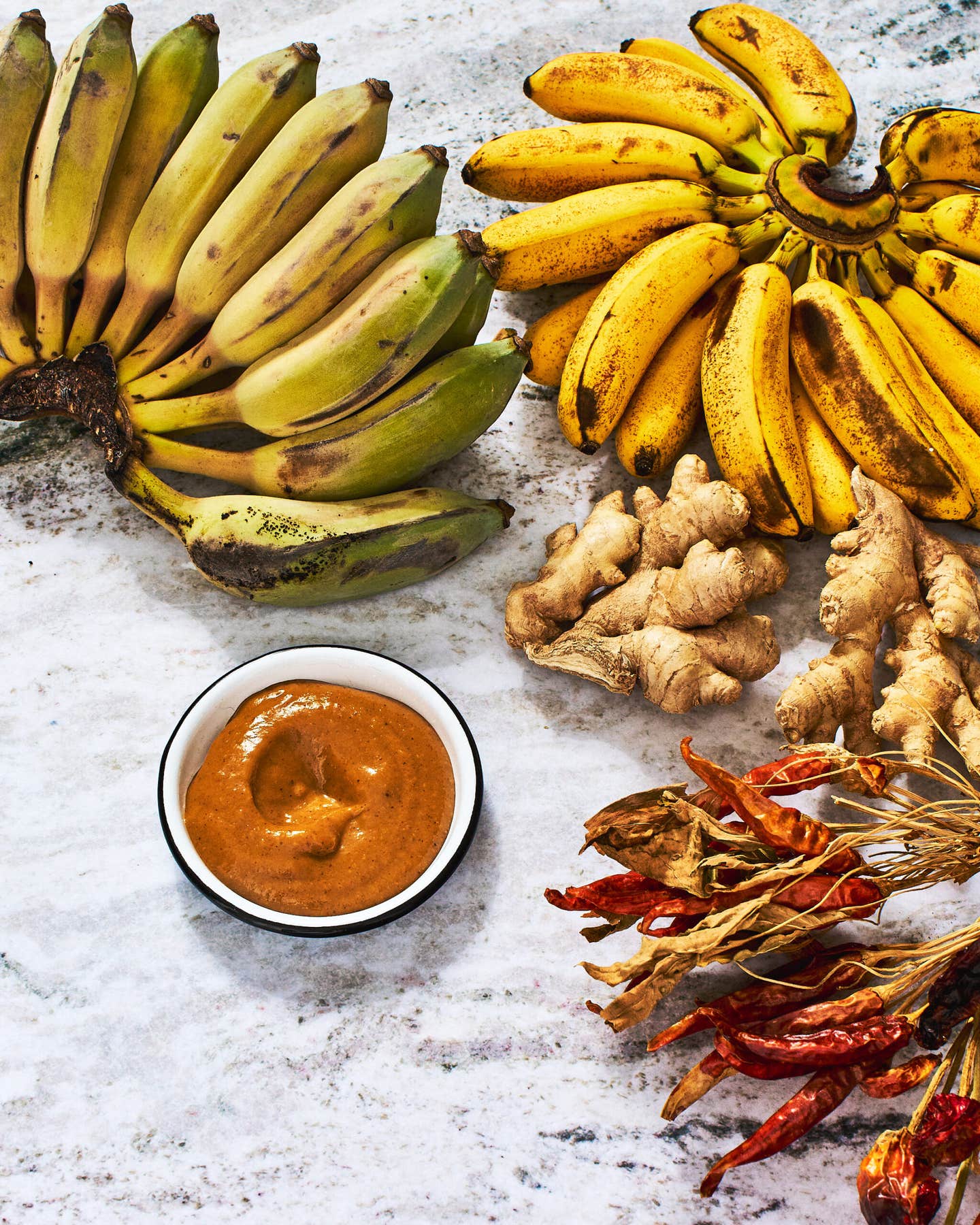
This simple whole-fish preparation highlights the sweetness of the trout's flesh. Tying the fish with kitchen twine keeps the aromatics inside the cavity and ensures that the flesh is evenly cooked. This recipe first appeared in our October 2011 issue, along with Hunter Lewis's article The Boys' Club.
Ingredients
- 1 whole (2-lb.) rainbow trout or red snapper, scaled, gutted, and cleaned
- Kosher salt and freshly ground black pepper, to taste
- 3 sprigs thyme
- 2 sprigs flat-leaf parsley
- 1⁄2 lemon, sliced into thin rounds
- 1⁄4 cup extra-virgin olive oil
- 2 tbsp. fresh lemon juice
ADVERTISEMENTADAD
Instructions
Step 1
Heat oven to 450°. Season the trout cavity with salt and pepper, and stuff it with the thyme, parsley, and lemon slices. Using kitchen twine, tie the trout crosswise with 2 lengths of twine, spacing them 2″ apart. Rub the trout with 1 tbsp. oil, and then transfer them to an aluminum foil—lined baking sheet. Bake trout, turning once with a metal spatula, until cooked through and golden brown on the outside, about 15 minutes.
Step 2
Meanwhile, whisk the remaining oil with the juice in a small bowl, and season with salt and pepper. Remove the twine from the trout, and cut away the filets. Transfer the filets to serving plates, and drizzle with sauce before serving.
- Heat oven to 450°. Season the trout cavity with salt and pepper, and stuff it with the thyme, parsley, and lemon slices. Using kitchen twine, tie the trout crosswise with 2 lengths of twine, spacing them 2″ apart. Rub the trout with 1 tbsp. oil, and then transfer them to an aluminum foil—lined baking sheet. Bake trout, turning once with a metal spatula, until cooked through and golden brown on the outside, about 15 minutes.
- Meanwhile, whisk the remaining oil with the juice in a small bowl, and season with salt and pepper. Remove the twine from the trout, and cut away the filets. Transfer the filets to serving plates, and drizzle with sauce before serving.
Keep Reading
Continue to Next Story
ADVERTISEMENTADAD










